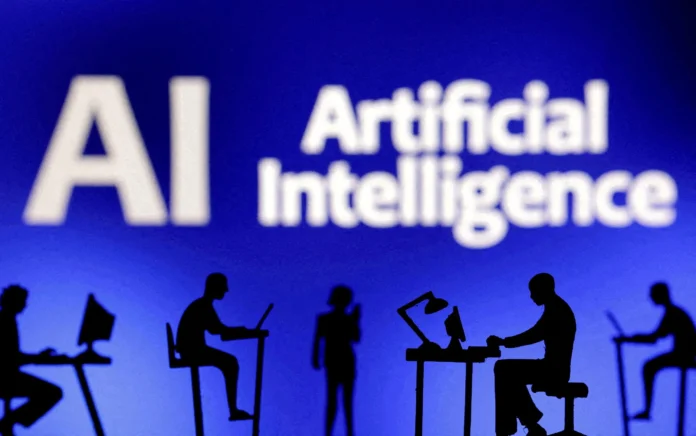By Agencies
A recent Reuters/Ipsos poll reveals significant concern among Americans regarding the potential for artificial intelligence to permanently displace jobs across the nation. Conducted over six days and concluding on Monday, the survey found that 71% of participants expressed worry that AI could lead to “too many people being put out of work permanently.”
The discussion around this new technology gained momentum in late 2022 with the launch of OpenAI’s ChatGPT, which quickly became the fastest-growing application ever. Major tech firms, including Meta Platforms, Alphabet, and Microsoft, have since unveiled their own AI offerings.
Currently, the job market remains stable, with the U.S. unemployment rate at 4.2% as of July. However, the rise of AI is raising alarms as it transforms jobs, industries, and everyday life. Notably, 77% of those surveyed expressed concerns that AI could incite political turmoil, reflecting anxiety over the frequent use of AI to create deceptive videos of fictitious events. For instance, last month, former President Donald Trump shared an AI-generated video of former President Barack Obama being arrested—an event that never occurred.
The poll also highlighted skepticism about military applications of AI, with 48% of respondents opposing its use to identify military targets, while only 24% supported such measures. Another 28% were uncertain.
Despite existing concerns, enthusiasm for AI continues to drive investments, exemplified by plans from Foxconn and SoftBank to establish a data center equipment factory in Ohio. The competition between the U.S. and China for AI supremacy is also reshaping national security strategies.
Energy consumption is another worry, with 61% of Americans concerned about the electricity demands of AI technology. In response, Google announced agreements with two U.S. electric utilities to curb AI data center power usage during peak demand periods, as the energy-intensive nature of AI outpaces available power supplies. Criticism has also arisen over AI applications that enable bots to engage in romantic conversations with children, generate misleading medical information, and facilitate racist arguments.
Additionally, two-thirds of poll respondents fear that people may prefer AI companions over human relationships. Opinions on AI’s potential impact on education are divided, with 36% believing it will enhance learning, while 40% disagreed and the remainder were unsure.
The Reuters/Ipsos survey included responses from 4,446 U.S. adults nationwide and has a margin of error of about 2 percentage points.

